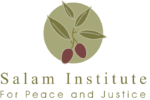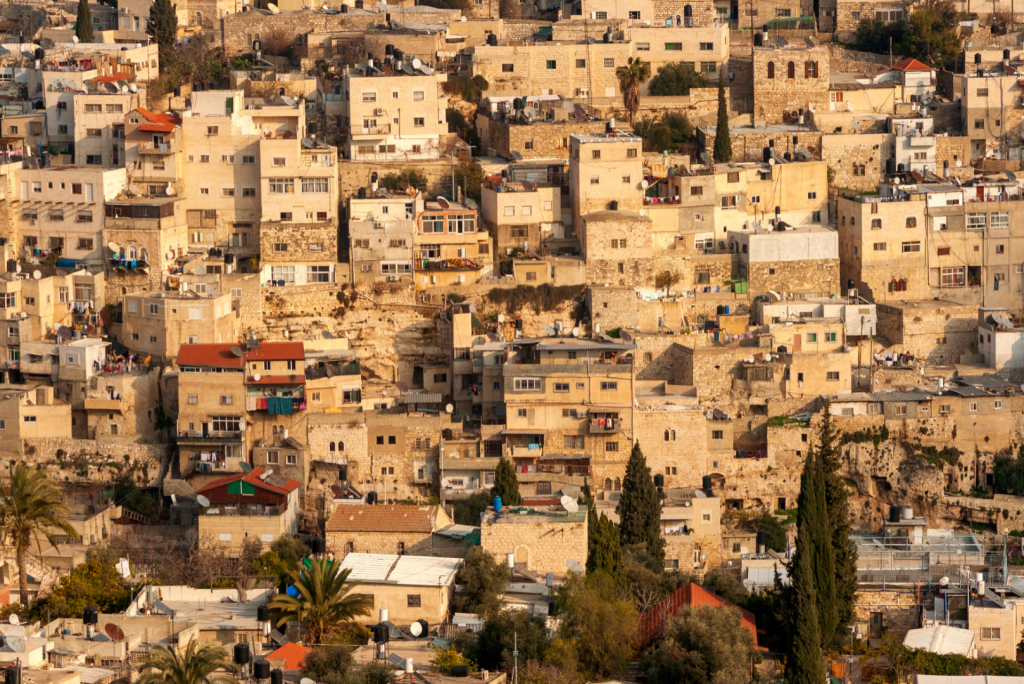The Israeli-Palestinian conflict and war in Gaza have reached an unprecedented scale of destruction and victimhood among Palestinians and Israelis.
As of today, 10,000 Palestinians have been killed (among them 4200 Children), over 32,000 Palestinians injured, (Associated Press report Nov. 3, 2023), 65000 of Gaza’s houses are destroyed and affected by the carpet bombardment by Israeli bombing, and 750,000 Palestinians are displaced from their homes. The Israeli side has also its losses, 1400 killed on the October 7 attack and 240 hostages, 19 Soldiers killed, and 160,000 evacuated from their homes.
It’s an unfortunate truth that the echoes of conflict between Israel and Palestine have resurfaced, echoing the same distressing narrative we’ve witnessed far too often in the past decades. Sadly, and tragically, the conflict narrative has reverted back to the 1960s and 1950s, with existential fears driven by the total war of “either us or them.” The recent Israeli vicious, relentless bombardment on Gaza reflects a recurring cycle, a cycle that appears to teach us no new lessons despite the evident and painful repercussions of these actions.
Over a long period, the Israeli-Palestinian conflict has illustrated a distressing portrayal of the toll on human lives. It appears that the dominant perception, reinforced by political language, suggests that causing harm to the opposing side ensures a future devoid of conflict. Nevertheless, history contradicts this notion. The idea that safety is attained through forceful devastation, deprivation, and separation is not only flawed but profoundly and inaccurately guiding.
On one side, the Israeli public is fed the notion that safety is guaranteed through the devastation and ethnic cleansing of Gazans, while the Palestinian people grapple with the belief that resisting and proving the futility of advanced military might somehow end the occupation. Yet, both sides seem to have missed the fundamental lesson that violence only begets more violence, and lives lost or scarred in the conflict don’t pave the way for lasting peace and security.
Undoubtedly, the circumstances on either side are not equivalent. Palestinians fight for liberation from what is recognized as the largest open-air prison and an apartheid reality with no accountability for the ongoing expansion of settler brutal attacks in the West Bank, while Israel boasts sophisticated military technology backed by global superpowers. The situation is further complicated by the endorsement of settlements violating Palestinian rights, exacerbating the crisis and causing unwarranted bloodshed.
However, amidst this turmoil, there remains a compelling need to not relinquish hope in the pursuit of peace and justice through nonviolent means to resolve this long-standing conflict. The ongoing cycle of violence, destruction, and retaliation has only resulted in breeding more hatred, fear, and instability. On the contrary, the devastation and massive killing in Gaza is causing a second generational trauma among all Palestinians, and the Israeli public opinion and government already equating the October 07th attack by Hamas as the most traumatic event in the history of Israel since the October 1973 war.
This relentless cycle is not about proving who is more of a victim or who holds dominance over the other. Instead, it’s about recognizing the futile nature of such competition. Every new cycle of conflict births more grieving families, traumatized children, and widespread devastation, perpetuating a legacy we should vehemently strive to break.
The true solution lies not in supporting further militarization or encouraging violent narratives, but in advocating for the basic rights of both Israelis and Palestinians. Learning from the harsh lessons of history, it’s evident that violence and bloodshed have not been pathways to peace and security. The foundational pillars of peace have always rested on granting individuals the freedom to live with dignity and security.
It’s time for a change, a transformation that pivots away from the recurring cycle of destruction and suffering. Let us guide our children not by the repetition of violence but by setting an example of negotiation, and compassion, highlighting the sanctity of human life and a commitment to peace. The roadmap to resolution lies in recognizing the rights of Palestinians to attain genuine independence, dismantling the apartheid structures in occupied territories, releasing Gazans from their open-air prison, and allowing both Israelis and Palestinians to lead dignified lives in peace.
The lessons of history are clear. It’s time we heed them, not just for ourselves but for the generations yet to come. Enough is enough. Let’s carve a new path towards peace, dignity, and freedom for all in the region.
We all need to advocate for a resolution that addresses the root causes of the Israeli and Palestinian conflict, which equally grants Israelis and Palestinians the right to live in peace, security, dignity, and freedom. No matter the outcome of this round of massive destruction of Gaza, the lives of Israelis and Palestinians are intertwined and interdependent on this piece of land. Their future living in peace is dependent on their mutual security and freedom. No one will be secure or free if the other is under occupation and lives in constant fear and humiliation.
Our role as peacemakers is to equally advocate for peace, justice, and freedom for all people involved in this conflict and not be complacent or blindly support further weaponization and militarization of this region and its people.

